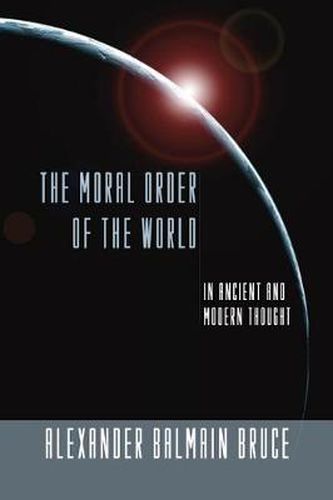Readings Newsletter
Become a Readings Member to make your shopping experience even easier.
Sign in or sign up for free!
You’re not far away from qualifying for FREE standard shipping within Australia
You’ve qualified for FREE standard shipping within Australia
The cart is loading…






This title is printed to order. This book may have been self-published. If so, we cannot guarantee the quality of the content. In the main most books will have gone through the editing process however some may not. We therefore suggest that you be aware of this before ordering this book. If in doubt check either the author or publisher’s details as we are unable to accept any returns unless they are faulty. Please contact us if you have any questions.
A.B. Bruce’s second series of Gifford Lectures, delivered in Glasgow (1898) focus on an historical survey of the Moral Order. The first series of lectures had been on Providential Order, which Bruce considered theistic. Here, Bruce includes in his survey those whose moralities do not necessarily hold to a belief in a living personal God, as well as theists. The author conducts his survey in light of the question, with regard to the moral order, what have the wisest thought? Included in the survey are chapters on Buddha, Zoroaster, the Stoics, Job, Jesus, Browning, and modern dualism.
$9.00 standard shipping within Australia
FREE standard shipping within Australia for orders over $100.00
Express & International shipping calculated at checkout
This title is printed to order. This book may have been self-published. If so, we cannot guarantee the quality of the content. In the main most books will have gone through the editing process however some may not. We therefore suggest that you be aware of this before ordering this book. If in doubt check either the author or publisher’s details as we are unable to accept any returns unless they are faulty. Please contact us if you have any questions.
A.B. Bruce’s second series of Gifford Lectures, delivered in Glasgow (1898) focus on an historical survey of the Moral Order. The first series of lectures had been on Providential Order, which Bruce considered theistic. Here, Bruce includes in his survey those whose moralities do not necessarily hold to a belief in a living personal God, as well as theists. The author conducts his survey in light of the question, with regard to the moral order, what have the wisest thought? Included in the survey are chapters on Buddha, Zoroaster, the Stoics, Job, Jesus, Browning, and modern dualism.